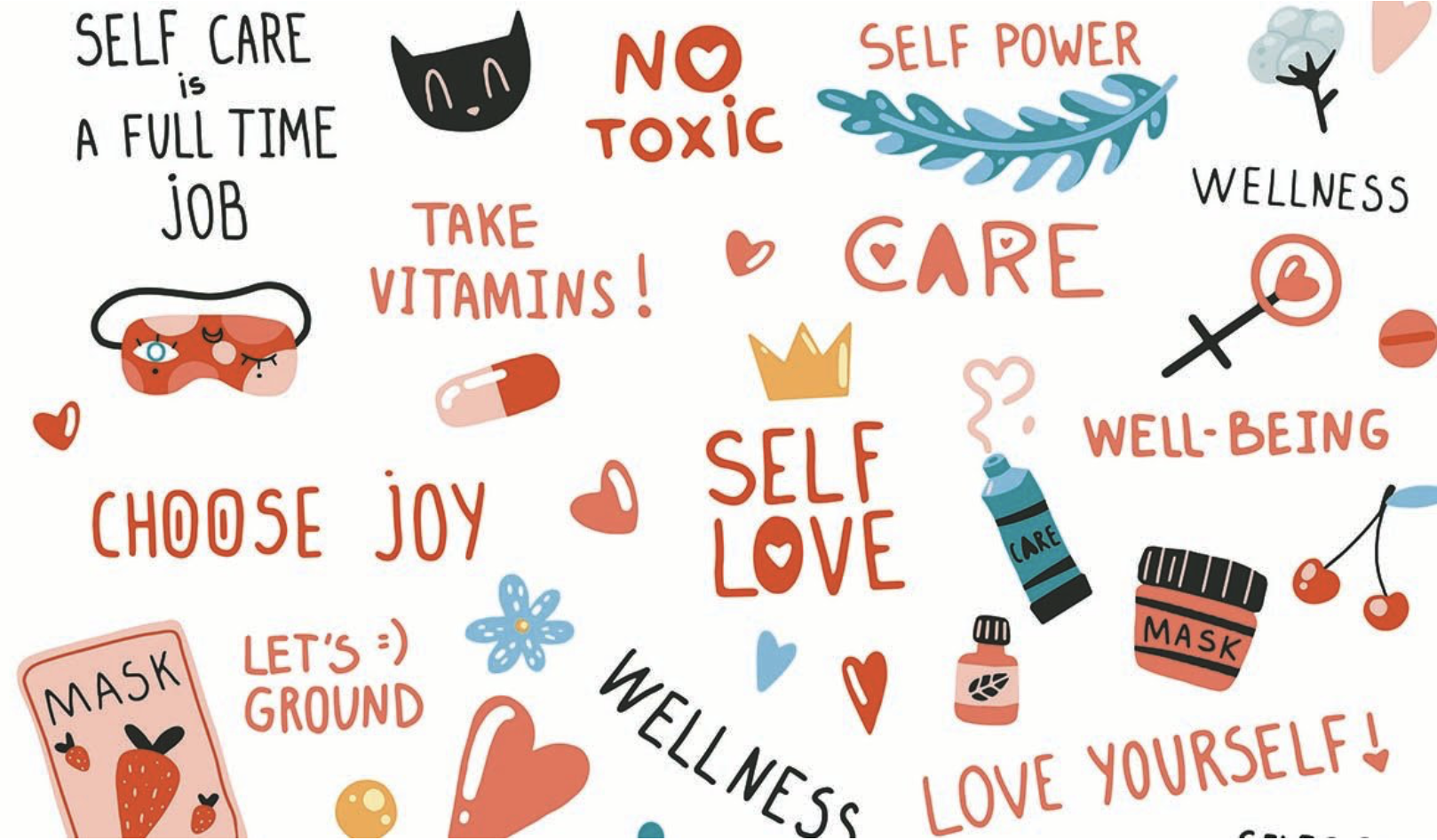We need to talk about therapy speak 🙊

Therapy speak is everywhere.
Throw a digital stick into the internet ether and you’ll clatter into people being “toxic” or “gaslighting” someone else. Keep going and you’ll find a galaxy of narcissists not maintaining their boundaries, and preventing everyone else from practising self care.
Search “gaslighting” on YouTube and the top result (“10 Examples of What Gaslighting Sounds Like”) has more than three million views. On TikTok, the #narcissism hashtag has 3.8 billion views.
It’s fair to say that psychology speak is now regular speak. Great you might think! We are now all well versed in ideas around boundaries, borderline personality disorders and breaking down trauma. Which inevitably means we are now all in the process of healing and taking better care of each other. Right? RIGHT?!
Sadly, the opposite is true. Therapy speak has become a strange weapon we now deploy to distance, demonise, and deride each other online. Bad relationship? Narcissist. Got into an argument with a friend? You were totally gaslit. Had a shit time at a festival? You got traumatised, bro.
It’s time we had a frank and honest conversation about Therapy Speak.
What is therapy speak? 🤔

Therapy speak is a slightly silly catch-all term for words that have historically lived in the realm of mental health circles and found new homes elsewhere.
During the pre-war years, terms like “hysteria,” “shell shock,” and one’s “inner child” all crept off the couches of Sigmund Freud and his contemporaries into our lives. Ideas around “repressing feelings”, having a “death wish”, “slips of the tongue” and “transference”, came a bit later, all were born and raised by people working in the mental health field.
But more recently, there’s been a new wave of terms. Now we talk about our coping mechanisms. We project, or are projected on to. We shun “toxic” people. We catastrophize and ruminate. We diagnose, or are diagnosed: OCD, depression, anxiety, ADHD, narcissism.
We make, break or struggle to “hold” boundaries. We practise self-care. We know how to spot gaslighting. We’re tuned into our emotional labour. We’re triggered. We’re processing our trauma. We’re doing the work.
This Cambrian explosion of terms, most people believe, can be attributed to the rise in people seeking mental health treatment during the Covid years. Remember those? This was paired with therapists taking to the interwebs to share psychological concepts on social media, and finding willing audiences all too happy to take up the mental health mantle.
But what’s been the impact of this awakening of our inner psychologist? Like my relationship with my waistline, it’s complicated.
Weaponised Words ⚔️

All the way back in 2019, a Twitter thread offered a template for turning down a friend’s request for help.
“Hey! I’m so glad you reached out,” it read. “I’m actually at capacity/helping someone else who’s in crisis/dealing with some personal stuff right now, and I don’t think I can hold appropriate space for you. Could we connect [later date or time] instead/Do you have someone else you could reach out to?”
Now, this was roundly mocked because it implied you could use empathic language to be anything but. But the idea lived on. Earlier this year, the internet caught fire after Sarah Brady, the ex-partner of Jonah Hill, shared text messages he’d sent her about his “boundaries” (no “surfing with men”, no friendships with “women who are in unstable places” and no swimsuit selfies).
The concept of a boundary became a weapon by which one person could control another. Now, Jonah Hill is not the weaponiser in chief, he’s just become an unlikely poster boy.
But his use of therapy speak to coerce and control became more visible. Terms like “boundaries” and “holding space” have created an odd dynamic where interpersonal relationships can be treated in more transactional ways. Therapy speak meant we became further apart, rather than closer together. Here’s some other examples I’ve heard recently:
- your intrusive neighbor has “borderline personality disorder”
- Your best friend gaslit you because you didn’t want to go out.
- Your mother is a narcissist because she ignored you when you came home.
These things might be true. But what happens when we do that is that we get a sense of authority and power, while pathologising someone else. In essence, when we reduce or boil someone down, it makes us feel ‘right’ and the other ‘wrong’. These words effectively become clubs that strip others and our experiences of their complexity.
It transforms a “deeply relational, nuanced, contextual process,” says Lori Gottlieb, the author of the book Maybe You Should Talk to Someone, into something “ego-directed, as if the point were always, ‘I’m the most important person and I need to take care of myself.’ ”
“Therapy speak offers an odd way of relating to one another,” says Eleanor Morgan, author of Hormonal: A Conversation About Women’s Bodies, Mental Health and Why We Need to Be Heard. “It prizes disconnection over the messy ebb and flow of real life. It’s rife, yes, but let’s not pretend that actual therapy is at the crux of it.”
But there is another way.
📣📣 PSA: I’ve got a cracking subscriber-only story on the history of wellness over on The Brink coming up, subscribe to get it right in your inbox.📣📣
Finding a new language

The process of learning about yourself often means having to find new means of describing who you are, how you feel, and what has happened to you. Therapy speak can be a step in that journey. Think of it as a shorthand for “I think I need some help”.
But to get the help we need we have to keep going. That language only takes you so far, and as I’ve discussed, can lead you further away from what you really want: understanding, care, intimacy, all the good stuff.
To keep going, means we have to be more specific. In therapy, if someone says, “that person was a narcissist” it’ll be met with, “say some more about that”. We want a more detailed description of what is going on.
If a client is using therapy-speak, the goal is to move towards something more immediate and emotionally alive. We want people to feel what happened, rather than put it in a box, label it, and be done with it. Any good therapist won’t be interested in labels. They want to know what it feels like. Sometimes those feelings can be scary, where as calling someone toxic feels easy.
“By virtue of being human beings, we’re masters at distancing ourselves from difficult aspects of emotional life,” says Dr Jonathan Shedler, a psychologist at the University of California, San Francisco.
“One way we distance ourselves is through words. What we’ve got now is this kind of pop-psychology language of clichés, abstract concepts and turns of phrase that are so different from speaking from the heart.”
In essence, if we want to be more understood, we have to find a way of using language that may feel more challenging or revealing.
For some people, it’s very difficult to say, ‘I was angry’ or, ‘I was terrified’. So there’s already a distance between them and what their internal experience is. Something we try very hard not to do in therapy is locate the upsetting thing externally. If you leave the ‘I was triggered’ there, your internal experience is almost secondary. In meaningful therapy we try to reverse that.
It’s hard, but it gets us a little closer to what we really mean.
Things we learned this week 🤓
- 🤔 It’s official: you can now become psychologically rich.
- 🤷 Online interactions can come close to the real thing.
- 💏 People with high intelligence have reduced emotional range.
- 📱 Mental health apps, not as good as we think.
What you should do this week 📅
Become a member! This is the free version of The Brink, but there is a secret, extra special version that has things like:
- 🎤 Podcasts
- 📹 Video
- 🙋 AMAs - Ask me Anything and I’ll make a video an article for you to cut out and keep.
- 💆 Proper, researched ways of alleviating stress and anxiety.
It’s only $5 a month, or $50 for the year, which is 17% less than doing it monthly I’ve been told. What are you waiting for? Head here and click the "subscribe button".
I love you all. 💋

